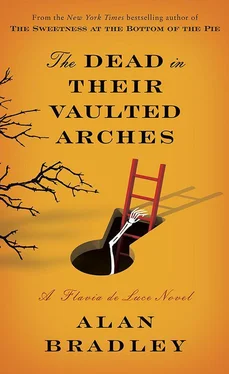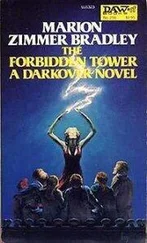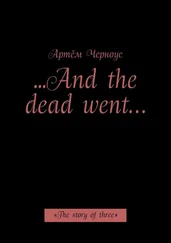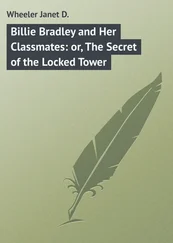I pried it gently open and looked inside, turned it upside down and tapped it. A few particles of debris fell out onto the bench.
Lint? Dust? Soil? It was difficult to know. I brushed them carefully onto a piece of filter paper for later examination under the microscope.
Next was the taste test. I stuck out my tongue and, touching its tip to the packet, inhaled gently, waiting for the warmth of my body to release whatever essential oils might remain after all these years to be sensed by my taste buds and my olfactory system.
Linseed oil, definitely—as I had supposed.
For an advanced analysis of the material, I would snip off a sample and subject it to steam distillation, which would reveal any of the less obvious ingredients that might have been used in the wallet’s manufacture, or to which it had later been exposed.
Body fluids, such as sweat, were a distinct possibility, and I couldn’t say I was much looking forward to their discovery. On the other hand, the packet had been preserved for ten years by freezing and might well be a treasury of hidden chemical clues.
But first I would carry out the simplest and least destructive test: a gentle warming over the flame of the Bunsen burner while watching intently for any physical change. The volatile oils heated and combusted at varying degrees of temperature depending upon their chemical structure, and the first changes, however slight, were often visual.
By starving it slightly for air, I adjusted the burner for its coolest flame and began by holding the oilskin packet several inches off to one side. It wouldn’t do to have the oily wallet catching fire.
Keeping it in constant motion and waving gently back and forth, I gradually brought the wallet closer to the flame.
After a minute or so, there had been no perceptible change.
I increased the flow of air and watched as the flame changed instantly from orange to blue.
Again I began waving the wallet: to and fro … to and fro.
Still nothing.
I was about to give it up when something caught my eye. It was as if parts of the oilcloth were darkening ever so slightly.
I held my breath. Was it—could it be—?
Yes!
A pattern was becoming visible on the oilcloth: at first no more than a mottled appearance—tiny rivers of black similar to thin, dark veins on marble.
But even as I watched, they began to blur. The heat was causing these stains—whatever they might be—to spread and absorb into the fabric of the oilcloth.
There wasn’t a moment to waste! I needed to outline this twisting shape before it could blur beyond all recognition.
I shut off the burner, pulled a pencil from a drawer, and sketched quickly on the warm surface, trying to trace each part of the pattern before it could disappear.
Some far corner of my brain recognized the shape even before I became consciously aware of it.
Look, Flavia! Look! Think!
It was handwriting.
Letters. A word.
Invisible writing! A black word brought to light by heat—brought to light by the flame of the burner in the same way that the invisible images on the ciné film had been made visible by the chemicals of the developer.
A word resurrected. A word presumably written by Harriet, trapped in a glacial crevasse, knowing that she would never escape alive.
Why would she leave a message in invisible ink? Why wouldn’t she have written it on the paper, and in pencil, as she had done with her will?
The answer seemed obvious: She wanted the will to be legible to anyone who found it—found her —but the two words scribbled on the oilskin wallet to remain invisible to everyone but a person who was looking for them.
But how on earth could a woman trapped in a glacier contrive to leave a message in invisible ink? It could easily be done in a country manor house with access to even a few common household chemicals. But in the Himalayan ice?
Any acid could be used to produce invisible writing. It was only necessary to take care that its strength was not so great as to burn the paper.
But invisible inks? They were everywhere: lemon juice, vinegar, milk—even spit could be used in a pinch.
Spit? Saliva?
Of course!
Like all great simple solutions, the answer had been there all along.
Urine! How clever of her.
One’s urine was a rich stew of chemical constituents: urea, sulfates of potash and of soda, phosphate and muriate of soda, ammonia, lactic acid, and uric acid, to name just a few. A better invisible ink could hardly be concocted if it had been prepared by an apothecary and bottled in the back room at Boots!
Besides that, the stuff was readily available and free.
In ordinary circumstances, I would have begun my analysis by examining the wallet under ultraviolet light, but the bulb in my UV lab lamp had recently snuffed it, and I hadn’t had an opportunity to manage a replacement. Bathed in ultraviolet light, the urine would have fluoresced at once, saving me the trouble of using the Bunsen burner.
I stared at the squiggly lines, straining to make sense of their twistings and turnings. It is a fact that any unfamiliar pattern takes a certain amount of time for the brain to recognize. One moment it is garbled nonsense, and the next—
And then I saw it.
“LENS PALACE” it said.
Lens palace? Whatever could that mean?
If I remembered correctly, there was a place in France called Lens. Our neighbor Maximilian Brock, the retired concert pianist, told me he had once been pelted there with lumps of coal by miners in the audience when he absentmindedly began his performance with a patriotic piece by Percy Grainger rather than the Debussy which had been listed on the program.
Was there a palace in Lens? I hadn’t the foggiest notion. If Max was at the funeral, I could ask him.
Or had I misread the word? Because the letters had blurred so quickly as they were heated, it might originally have read “Linz,” which was a city in Austria. I was quite sure of that because Feely had mentioned that Mozart wrote one of his best symphonies there at white heat—in just four days—for some old count or another. Was there a palace at Linz? It seemed more likely than Lens, but I would have to ask Daffy, who was more or less our household Inquire Within Upon Everything .
But what connection had Linz or Lens with Harriet? What possible message could those words contain?
It was evident—at least to me—that Harriet, having fallen into a glacial crevasse and knowing that all hope of rescue was gone, scrawled her last words in urine on the oilskin wallet in which she had placed her penciled will.
The treated surface would keep her writing crisp and sharp, at least until such time as some future investigator—I shivered at the thought that it was me—should warm the wallet and retrieve her message to the world.
But Lens palace?
It didn’t make sense.
Could it be a reference to a cinema? And if so, which one?
The Gaumont in London? The shabby little cinema off the High Street in Hinley could hardly be described as a picture palace, and besides, when you came to think of it, every cinema in the world had lenses in its projection machines.
It wasn’t likely that Harriet would leave so vague a clue as that, and although it was cryptic, it must have been meant to be decoded by somebody—somewhere.
The message must have been important to be worth going to so much trouble.
If you had only a couple of words left to you before you died, what would they be?
One thing was for certain: They would not be frivolous.
Perhaps it was an anagram—a simple rearrangement of letters: l-e-n-s-p-a-l-a-c-e.
I jotted down a few of the more obvious ones with my pencil: “claps an eel,” “canal sleep,” “lance leaps,” “sea nap cell,” and so on. It was easy to see that there were hundreds of possibilities, but none seemed promising. “Acne lapels,” for instance, was outright ridiculous.
Читать дальше












